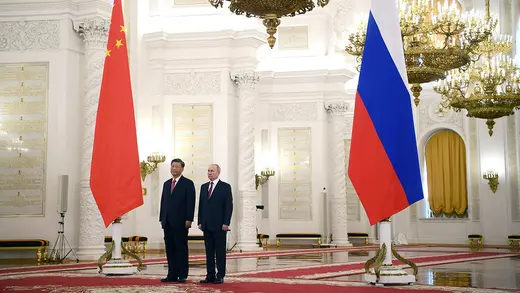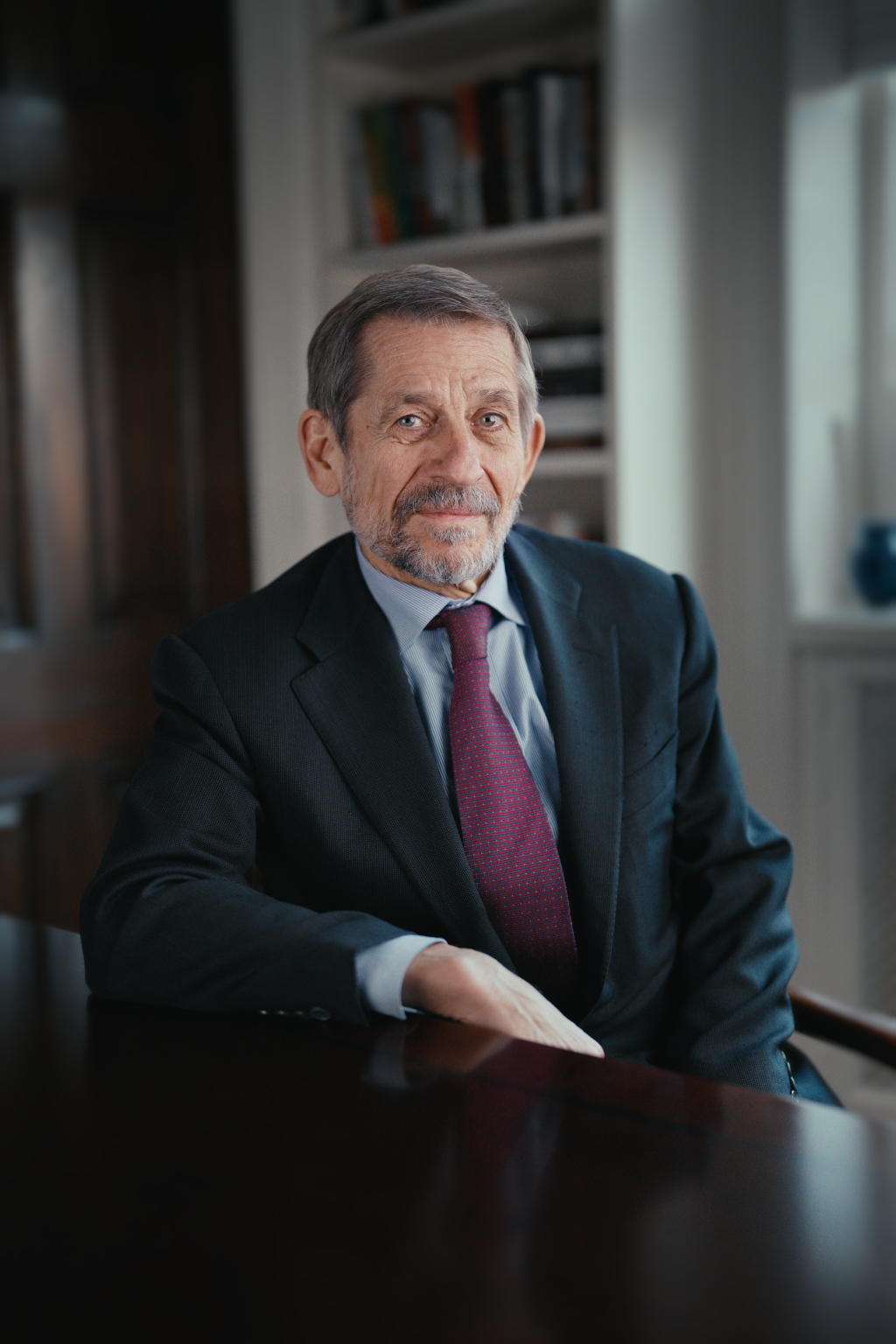Putin-Xi Summit Reinforces Anti-U.S. Partnership
The meeting of Russian President Vladimir Putin and Chinese leader Xi Jinping in Moscow helped both give the impression of a united front, but underlying tensions were also discernible.
What did the summit achieve for each side?
With the pomp of a state visit, Russian President Vladimir Putin and Chinese leader Xi Jinping shined a spotlight on their growing strategic alignment, which is aimed at upending the U.S.-led, rules-based international order in favor of a multipolar world. Long on symbolism, short on concrete substance, the summit nevertheless served both leaders’ purposes.
Putin welcomed the demonstration that Russia was not, and could not be, isolated on the world stage, as it deepened relations with one of the world’s two superpowers. By showcasing burgeoning commercial ties and unveiling plans to expand them, Putin conveyed confidence that Russia can remain resilient in the face of harsh Western sanctions.
Meanwhile, Xi’s decision to make Moscow his first foreign visit of his third term as president underscored his strong commitment to Russia and to Putin personally. He used the summit to underscore China’s determination to pursue its national interests in defiance of mounting U.S. economic and diplomatic pressure—making the point that China will not abandon its strategic partner in pushing back against U.S. pretensions to global leadership. That was a crucial message for his increasingly nationalistic domestic audience, as well as for the Global South, where the U.S.-led liberal order is under stress.
At the same time, Xi subtly let it be known that China is the dominant partner. Putin had little choice but to accept Xi’s proposal that Russia use the yuan, not the ruble, in trade with the Global South to diminish the role of the U.S. dollar in world trade. Xi also gratuitously endorsed Putin for reelection in 2024, even though the Russian president has not declared his intention to run. And at the joint press availability at the end of the summit, Xi was much more restrained in his description of bilateral relations than was Putin, who was eager to lay out all the areas in which the two countries would enhance cooperation in the years ahead. That left the clear impression that Russia needed China much more than China needed Russia.
What does the summit mean for the war in Ukraine?
Nothing at the summit suggested that the underlying dynamic in the war was about to change. As expected, Beijing continued to provide Moscow with strong diplomatic support, echoing the latter’s narrative blaming the North Atlantic Treaty Organization (NATO) for the conflict. Despite Washington’s fears, however, Xi gave no indication that China was ready to provide lethal military aid that might radically improve Russia’s chances on the battlefield. Putin noted that China’s recently released 12-point peace plan could serve as a basis for negotiations, but neither he nor Xi suggested any practical steps that might give substance to what is largely a list of bromides about respecting sovereignty, avoiding escalation, and seeking a diplomatic solution.

The reality is that China benefits from the military stalemate. Russia’s aggression distracts U.S. attention and resources from the Indo-Pacific region, while Western sanctions compel Russia to turn to China as an economic lifeline. China exploits Russia’s predicament to gain access to critical natural resources, especially oil and gas, at discounted prices.
In line with this calculus, Xi provided Putin with sufficient moral and material support so that he could continue the fight, but much less than needed to give Russia the advantage. At the same time, the Chinese continued to drive hard commercial bargains. Notably, no deal was announced to build a second Power of Siberia gas pipeline, which Putin has described as “the deal of the century.” Rather, it was simply noted that further details needed to be negotiated, as China explores alternatives.
What does it reveal about the underlying tensions between China and Russia?
Except for a brief period after the Communist takeover of China in 1949, China and Russia have been rivals, not partners. Until the end of the Cold War, Russia was by far the superior power.
The dynamic changed dramatically after 1991. Then, the two countries’ economies were roughly the same size. Now, China’s economy is ten times larger, and the gap continues to widen. Moreover, China now casts a much larger shadow on the global stage: it has overtaken Russia in the development of advanced technology and its conventional military is comparable to Russia’s, even as it is moving toward nuclear parity with both Russia and the United States.
What once could have been seen as a roughly equal partnership has evolved to the point where Russia is decidedly the junior partner. Despite the rhetoric of comprehensive partnership and avowals from Putin and Xi that relations have never been better, this asymmetry in power and ambition is in itself a source of friction, in addition to the civilizational clashes, racial prejudices, territorial grievances, and geopolitical competition that have strained relations in the past.
But these sources of tension are currently far outweighed by the shared challenge from the United States. Washington’s current policy of dual containment only reinforces their strategic alignment and pushes the tensions further into the background.
